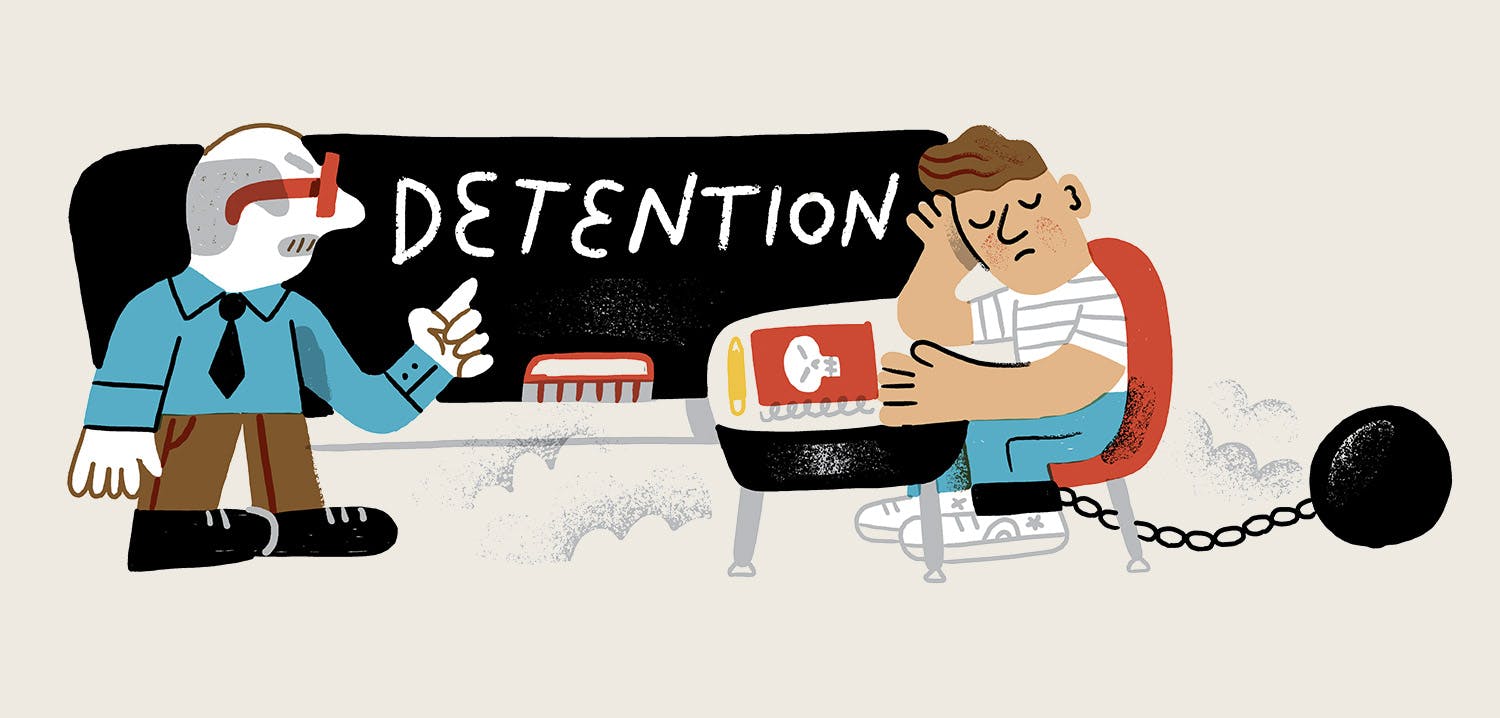The school-to-prison pipeline is a way of describing the unintended but ultimately catastrophic link between zero-tolerance school discipline policies and the criminalization of youth.
In the past decades, schools developed zero-tolerance policies for responding to behaviors and actions that were perceived to be disruptive to the learning environment. Though these policies differ in how they are constructed, they result in students being removed from the classroom, suspended, expelled, or even arrested. Often, these policies push responsibility for resolution into the justice system where youth encounter harsh punishment.
A longitudinal study conducted in Texas found that students with one suspension event were five times more likely to drop out of school, and students who were suspended as a disciplinary action were nearly three times more likely to have a juvenile justice contact in the following year. The rates of suspension and expulsion, particularly for Hispanic and African-American boys, parallel other stark data from the Bureau of Justice Statistics. Based on 2015 data, 57 percent of all inmates are black and Hispanic, while U.S. Census Bureau data from 2015 shows both groups together representing only 30.9 percent of the U.S. population.
While these statistics are evidence of complex, systemic problems, citizens and educators can help to change them.
At Seattle Pacific University, we are joining the national movement to disrupt the school-to-prison pipeline through our commitment to graduating informed and prepared teachers, school counselors, and administrators. In our education courses, we read and discuss the policies that have led to a zero-tolerance environment, and we explore personal and cultural biases that might influence how a teacher or principal interprets students’ behavior. We train educators to practice and implement school discipline strategies that are more effective than zero-tolerance policies.
In 2015, the School of Education diversity committee worked with the Multicultural Education Rights Alliance to host a panel discussion on the school-to-prison pipeline. Panelists urged us to consider the relationships and resources that a school can draw upon prior to involving the justice system, such as collaborating with community mentors who may live, work, and go to church with students.
Whether our students aim to be teachers, counselors, or administrators, education is a mission-based career. We go in to the schoolhouse hoping to change the world, but we can be discouraged when faced with the reality that schools hold and even foster many of the social ills that divide us. Future educators need to know the truth behind the challenges they will face, but also to be encouraged by the possibilities for transformation.
 Jill Heiney-Smith joined SPU’s faculty in 2014. She teaches in the undergraduate and graduate teacher education programs and directs the office of field placements and professional partnerships.
Jill Heiney-Smith joined SPU’s faculty in 2014. She teaches in the undergraduate and graduate teacher education programs and directs the office of field placements and professional partnerships.




